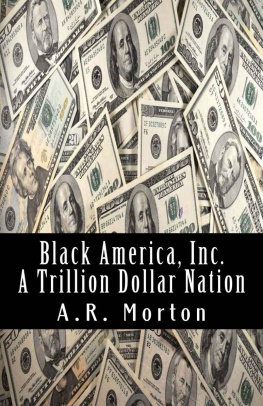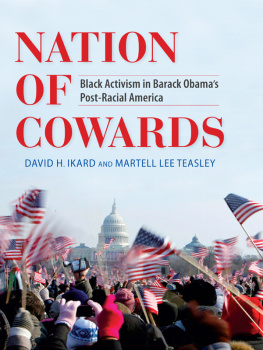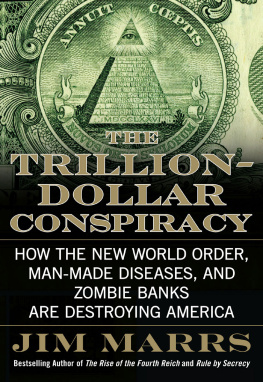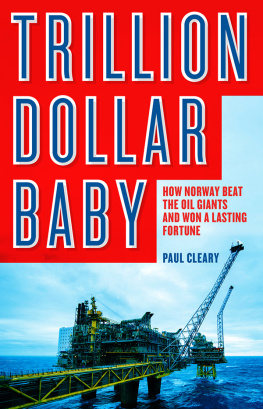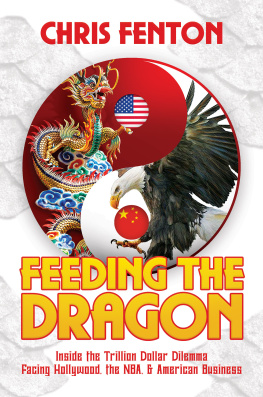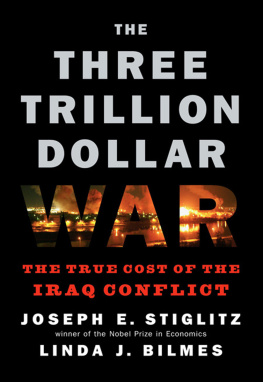A R Morton - Black America, Inc.: A Trillion Dollar Nation
Here you can read online A R Morton - Black America, Inc.: A Trillion Dollar Nation full text of the book (entire story) in english for free. Download pdf and epub, get meaning, cover and reviews about this ebook. year: 2016, genre: Science. Description of the work, (preface) as well as reviews are available. Best literature library LitArk.com created for fans of good reading and offers a wide selection of genres:
Romance novel
Science fiction
Adventure
Detective
Science
History
Home and family
Prose
Art
Politics
Computer
Non-fiction
Religion
Business
Children
Humor
Choose a favorite category and find really read worthwhile books. Enjoy immersion in the world of imagination, feel the emotions of the characters or learn something new for yourself, make an fascinating discovery.
- Book:Black America, Inc.: A Trillion Dollar Nation
- Author:
- Genre:
- Year:2016
- Rating:5 / 5
- Favourites:Add to favourites
- Your mark:
- 100
- 1
- 2
- 3
- 4
- 5
Black America, Inc.: A Trillion Dollar Nation: summary, description and annotation
We offer to read an annotation, description, summary or preface (depends on what the author of the book "Black America, Inc.: A Trillion Dollar Nation" wrote himself). If you haven't found the necessary information about the book — write in the comments, we will try to find it.
A R Morton: author's other books
Who wrote Black America, Inc.: A Trillion Dollar Nation? Find out the surname, the name of the author of the book and a list of all author's works by series.
Black America, Inc.: A Trillion Dollar Nation — read online for free the complete book (whole text) full work
Below is the text of the book, divided by pages. System saving the place of the last page read, allows you to conveniently read the book "Black America, Inc.: A Trillion Dollar Nation" online for free, without having to search again every time where you left off. Put a bookmark, and you can go to the page where you finished reading at any time.
Font size:
Interval:
Bookmark:
BLACK AMERICA, INC.
A TRILLION DOLLAR NATION
By A.R. Morton
Id rather you hate me and pay me, than to like me and fight me.
- A.R. Morton
Table of Contents
Dedication.... 7
Trillion Dollar Nation 9
Section 1: Food.. 25
Section 2: Education. 47
Section 3: Housing. 63
Section 4: Clothing & Apparel. 79
Section 5: Sciences & Technologies. 96
Section 6: Entertainment. 110
Section 7: Sports. 125
Section 8: Transportation. 137
Section 9: Finances. 163
Section 10: Social Services. 174
Section 11: Politics. 203
Wealth Building: Where Do We Start?... 214
Section 12: Housing Budget. 220
Section 13: Food Budget. 233
Section 14: Clothing Budget. 241
Section 15: Getting Out of Debt. 253
Section 16: Boycotting. 283
Conclusion: The Aftermath. 301
Resources: What Do We Have... 333
Message to the Trillion Dollar Nation. 423
Acknowledgments. 432
References. 435
Dedication
I dedicate this book to my beautiful wife Averia and my two amazing daughters Aniyah & Mai. The biggest and most significant reason behind me writing this book was to be able to leave some knowledge with my family that they can use and pass on for generations to come. My wife and my children are my number one motivators in everything that I do. The work that I do to help people comes from the things my wife and children do for me. As a husband and father, I believe it is my duty to guide, protect and provide for my family to the best of my ability at all times. This book is just one of the many examples of what I have been able to accomplish with the tremendous support I get from the three of you. I am grateful for this amazing family we have created. I love you all. Thank you for everything.
Trillion Dollar Nation
Hotep everyone. If you have done any research on the social, political and economic status of the black community, its plausible you have come across the fact that Black Americans spend over one trillion dollars ($1,100,000,000,000) a year in the US retail market. These projections are expected to rise to 1.3 trillion by the year 2017. Because of this you may have asked Why are most Black Americans suffering financially? and that is a legitimate question to ask.
The answer is simple; most Black Americans lack the basic financial literacy that is necessary for the accumulation and growth of intergenerational wealth. Ninety-eight percent (98%) of their income is spent with businesses and services established by other ethnic groups and races outside of their communities.
Think about everything you pay a bill on, who owns that service provider? Reflect on the brands you buy the most, who owns it? The stores you shop? What percentage of these things are black owned? People have become so used to being consumers that they dont even care who they buy from and that is keeping them in a perpetual state of financial dependency which transcends into other aspects of society.
To bring it home for me, I imagined the Black American population as one nation and looked at the behavior of every other group in the same lens. The Black American Nation pays every other nation for their wants and needs and produces nothing for themselves. Ironically, if the Black American Nation were to stop relying on these other nations for their goods and services, those nations would suffer an exponential loss in their overall development because eighty-seven percent (87%) of their marketplaces get their funding from ninety-eight percent (98%) of the Black Nations economy.
Even though Black Americans represent some of the poorest demographics in this country we still somehow find the funds to give to these Big Business corporations to buy new clothes, shoes, hair, electronics, food, entertainment, alcohol, medicine, etc. Black Americans spend nine times more than any other group in this country even though we dont presently own or run any industries. The result of this behavior is the lack of self-sufficiency and practice of group economics within the black community.
If you travel to the Asian communities in your city, most of the businesses there will be run by Asians. This goes for the Jewish, Italian, and Middle Eastern communities as well. Fifty percent (50%) of the entire Asian population in the United States is self-employed, meaning they dont rely on external forces to secure wealth for them and theirs. I bring these examples up to show that it is possible for the black community to become more self-sustaining.
It is a little-known fact that the Black American dollar is one of the most powerful and sought after economic tools prized by industries relying heavily on the consumerism of the Black American populous. However, it is common knowledge that companies like the Nielsen Company and other institutions dedicate significant time and resources to the research and study of the spending habits of Black Americans. The collected data is then stored and distributed to individuals and businesses aiming to effectively market their goods and services to the black consumer.
If you equally divide the yearly expenses of every Black American, you would end up with a little over twenty-two thousand dollars ($22,000) each person. This figure is inclusive of every man, woman, and child.
Based on that math alone it is feasible that with proper financial acumen, black communities can greatly reduce the problems plaguing them in Corporate America and lower income environments. Although there are those who believe white supremacy and its components are the deciding factor in how blacks will fair in this country; I would caution that regardless of any validity to these claims, Black Americans still owe it to themselves and those they care about to find a solution.
We could mention the bombing of Black Wall Street in Tulsa, Oklahoma or we could speak about the heinous acts of violence and abuse from whites towards blacks. We can even talk about the way individual institutions locked black people out of opportunities so that they could cater to the white population, and all of that would be valid. However, what is equally as valid is what we do not discuss which is how most Black Americans have been complacent in their circumstance and how all of this can be changed with financial discipline and proper execution.
The primary goal should be for Black Americans to begin living better and owning more. To do this black people must first come together on a social, economic, and political basis. It is crucial for the prosperity and sustainability of black communities throughout the country that its residents are at the forefront of their empowerment.
A key factor here is the level of concern Black Americans have with Black American problems in the name of proactivity. Many black people in the United States are working to change the condition of their communities every day, but the numbers are still despairingly small. Because an even larger number of Black Americans are looking for external bodies to come in and change their condition in this country, the level of action to change it themselves decreases.
I want to make this very clear; this book is not an indictment of black citizens in America to shame them in any way. Though there are some troubling truths about the current state of black communities in America, this book is meant to educate and empower, not to belittle or berate. In the twenty-first century, Black Americans have the power, the access to knowledge and resources available to better themselves as a nation. We cannot and should not let the perils of the past dictate what is possible in the here and now. In fact, we should look at the past achievements that weve accomplished in these same points of time and use them as a driving force of our empowerment.
Next pageFont size:
Interval:
Bookmark:
Similar books «Black America, Inc.: A Trillion Dollar Nation»
Look at similar books to Black America, Inc.: A Trillion Dollar Nation. We have selected literature similar in name and meaning in the hope of providing readers with more options to find new, interesting, not yet read works.
Discussion, reviews of the book Black America, Inc.: A Trillion Dollar Nation and just readers' own opinions. Leave your comments, write what you think about the work, its meaning or the main characters. Specify what exactly you liked and what you didn't like, and why you think so.

